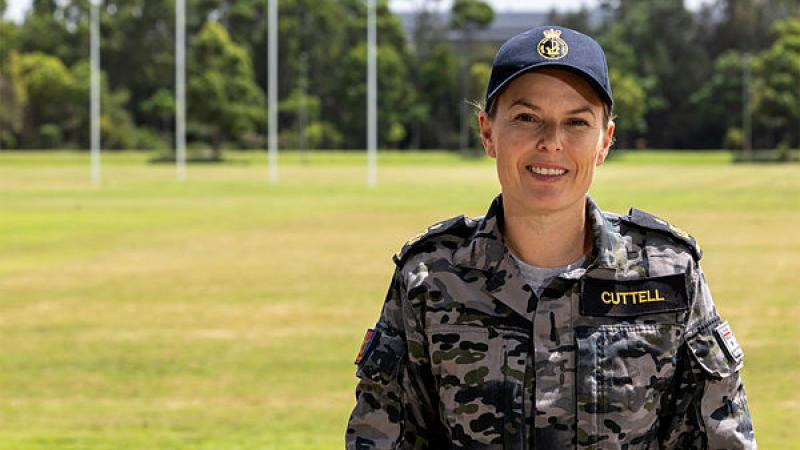- $138,500 in grant funding has been awarded to community-led projects in Queensland’s Far North
- The GenQ Health and Wellbeing Queensland Grants Program aims to support the health and wellbeing of infants, children and young people
- Grants were awarded to initiatives that promote physical activity, nutrition, health literacy, wellbeing and/or health equity
Local communities across Queensland are being empowered to implement initiatives that improve the health and wellbeing of infants, children and young people through new grant funding.
Health and Wellbeing Queensland, the state’s prevention agency, has awarded 25 community projects a total of nearly $400,000 in funding through its inaugural GenQ Health and Wellbeing Community grants scheme.
Grants were awarded to initiatives that promote physical activity, nutrition, health literacy, wellbeing and/or health equity in local communities.
That funding includes $138,500 delivered to nine community projects in the Far North – the region to receive the most funding through the scheme.
- South Cairns Gymnastics Club, $20,000 – To promote physical activity in the community through gymnastics, and to purchase specialised equipment to increase the number and type of programs on offer for all abilities, including extension of the Ninja Gymnastics program
- FareShare Australia, $20,000 – To develop a range of appropriate, nutritious freeze-dried food options for young people in the Yarrabah Aboriginal Shire Council and communities in the Far North, as part of the Meals for the Mob program. Freeze-dried meals and snacks are shelf-stable and enables more food to be delivered to remote locations efficiently, as they take up less space and weight during transportation.
- Tully Support Centre Inc, $20,000 – The Healthy Me initiative will build health literacy, create positive behavioural change to strengthen community connections to support members of the Tully community to lead their own health and wellbeing efforts through its culturally safe, community-led, locally responsive program.
- Swimming Queensland, $20,000 – To educate and train community members in Bamaga on swimming skills and safe swimming behaviours and attitudes through the Deadly Kindy Swimming, Pool to Creek, and Safe Water Ways programs, and provide aquatic accreditation to adults and 16 to 17-year-olds in the community.
- Pacific Integrative Health, $19,500 – The Pacific Food Champions initiative will deliver workshops to Pacific Islander parents/primary caregivers, school-aged children, and youth to help increase food literacy, empower parents, encourage the use of traditional fruits and vegetables and create culturally appropriate dishes that meet the Australian Dietary Guidelines.
- Wonga Beach State School Parents and Citizens Committee, $18,000 – To teach students at Wonga Beach State School strategies for preparing their own simple nutritional meals through firsthand cooking sessions and workshops and provide nutritional information, recipes and lunch box ideas to help educate families on affordable nutritious meals.
- Mount Molloy State School, $10,000 – To establish the ‘Next Gen Gardeners’ group to educate parents, children and community members at Mount Molloy State School in the growing and use of fruits and vegetables suitable to the Queensland tropical climate and create a community of people that network together to grow, gather and cook nutritious food locally.
- Queensland Police-Citizens Youth Welfare Association, $6,000 – To provide life skills training to Cooktown youth, through the PCYC Eat, Cook, Live program, and encourage healthy eating, provide cooking skills and empower youth to live a healthier life.
- Royal Queensland Lawn Tennis Association Ltd T/A Tennis Queensland, $5,000 – To develop and implement sustainable tennis programs in rural and remote locations in North Queensland, in partnership with Aboriginal and Torres Strait Island organisations and communities, through the supply of equipment and upskilling community leaders through a community coaching course to increase tennis participation in the Queensland First Nations young community.
Health and Wellbeing Queensland Chief Executive Officer Dr Robyn Littlewood said creating a generational shift was key to helping Queensland’s children and young people live healthier more active lives.
‘It’s wonderful this Children’s Week to acknowledge the communities across our state who are driving to improve the health and wellbeing of Queensland’s more than 1.2 million children and young people,’ she said.
‘New research shows that a child born in the decade from 2023 may have a shorter life expectancy than their parents – we need to reverse this trend.
‘These Community Grants are just one of the steps we’re taking to deliver our GenQ vision so that children born today experience better health outcomes than the generations of Queenslanders before them.
‘These grants will help make healthy happen faster for our state by driving innovation across key areas that have a huge impact on our health and wellbeing, and most importantly by supporting communities bring the ideas to life that will be most beneficial – because they know their own communities better than anyone.’
Click here for the full list of recipients.








